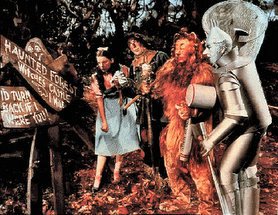Book Review - To Kill a Mockingbird

Title: To Kill a Mockingbird
Author: Harper Lee
Publisher: HarperCollins Publishers
Length: 323 pages
You’ve probably already read To Kill a Mockingbird. Or perhaps you’ve seen the movie, with its Oscar winning performance by Gregory Peck. I had done neither. My 10th grader read the book in school and said it was boring. My wife read it – she reads many of the books that the kids do. So I decided it was time for me to read it.
The story is told from the point of view of Jean Louise Finch, known as “Scout.” Her companions are her brother Jem and friend “Dill.” Scout, Jem, and Dill are determined to catch a glimpse of Arthur “Boo” Radley, their reclusive next door neighbor. Atticus Finch, Scout and Jem’s father, is a lawyer who has been given the assignment to defend Tom Robinson, a black man wrongly accused of raping a white woman. Atticus doesn’t just go through the motions of defending the case - he is convinced of Tom’s innocence and is determined to provide the best defense possible.
Scout has a childlike innocence and looks for the best in people, for the most part. Jem, approaching his teen years, struggles with depression when the events surrounding the trial show him that justice doesn’t always prevail. Atticus is a widower who understands life’s realities but hasn’t abandoned the ideals of youth. The kids struggle when their father is ridiculed because of his determination to defend Tom Robinson’s innocence. At one point Scout asks about what being a nigger-lover is. After Atticus explains, she asks “You aren’t really a nigger-lover, then, are you?” Atticus replies “I certainly am. I do my best to love everybody.” Through his actions and words Atticus portrays not only the kind of person who he himself is, but also the kinds of ideals he’d like his kids to embrace.
I thoroughly enjoyed this book. It is a gripping story – definitely not boring. The book becomes increasingly hard to put down as it moves toward its conclusion. It is as important in 2006 as it was when it was published in 1960. Racial tensions still exist in this country, and not just between blacks and whites. In this day and age we have racial profiling by police, mistrust of anyone of Arab descent, and civilian militias calling themselves “Minutemen” patrolling our border with Mexico. We are still far from the ideal articulated by Atticus Finch on the last page of the book: “Most people are [nice], Scout, when you finally see them.”




0 Comments:
Post a Comment
<< Home